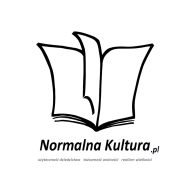First name: Jerzy; second name: Samuel; last name: Bandtkie
Born on 24 November 1768 in Lublin, died on 11 June 1835 in Kraków. He came from a family with German roots, originating from Szlichtyngowa near Wschowa. His father, John Samuel, was a merchant. His mother, Anna Maria of Noacky family, came from Lublin, where Jerzy Samuel was born.
He graduated from the eight-year junior high school of St. Elizabeth and then studied in Halle and Jena. He studied theology, philosophy and history. During his studies he worked as a teacher and translator of the Polish language, and then began his career as a lecturer of polish and Latin in his former junior high school in Wrocław, and in 1804 as a teacher of Latin. he became a vice-chancellor of the gymnasium of the Holy Spirit in the same city. He also worked as a librarian at St. Bernard’s church.
In 1802 he established cooperation with the famous Wrocław publishing house Kronos. He chose to demonstrate in German writings the historical polishness of Silesia and Silesian dialect.
George Bandtkie travelled a lot, he visited Berlin, Dresden, Warsaw and Petersburg among other cities. He met Adam Czartoryski, who helped him get a job as a librarian in 1811. He also became a professor of Bibliography at the Jagiellonian University. Bandtkie greatly enriched the collection of the books there, by seeking and acquiring rare copies, he also catalogued all the collections of the Post-Jesuit College. A year after he took office, a reading room was opened in the library.
On behalf of the Academy, he served as a senator of the Cracow Republic. Since 1806, he became a member of the Warsaw Society of Friends of Science, which prompted him to establish a similar association in Krakow. Alongside W. Litwiński, he was a co-initiator of the Cracow Scientific Society in 1815.
He published scientific journals: „Miscellanea Cracoviensia”, „Rozmaitości naukowe (Scientific Miscellany)”, as well as, „Pamiętnik Krakowski Nauk i Sztuk Pięknych (Diary of Cracow Sciences and Fine Arts”. Their contents were related to historical, philological and literary topics. He published a number of scientific works, among which some of them written for young recipients which is wort mentioning Krótkie wyobrażenie dziejów Królestwa Polskiego (A Brief History of the Kingdom of Poland). This work in particular was greatly appreaciated by Joahim Lelewel among others. The later re-edition of this work was enriched with an outline of economic, social and cultural history. Drawing attention to these aspects was then a fresh, previously unheard-of approach in academic circles. Together with his brother, Jan Wincenty, he published German language teaching aids as well as Polish-German dictionaries.
In 1818, he married his cousin – Zuzanna Dorota in the Evangelical Church of St. Martin in Cracow.
In „Mrówka Poznańska” he published an important dissertation entitled. Wiadomość o języku polskim w Szląsku i o polskich Szlązakach (News about the Polish language in Silesia and Polish Silesians) which initiated the beginning of Cracow scientific circle’s research on the history of Silesia. He proved in it, using modern linguistic methods, that Silesian dialect is a variant of Polish. He was also proving the Slavic lineage of the Silesians.
He maintained contacts in Wrocław, which resulted in making his journals available to the Silesians. He also introduced local scientists to the Cracow Scientific Society. He also initiated the introduction of Slavonic Studies at the Cracow Academy, and Cracow itself became a centre for Slavic Studies.
In 1833, he suffered partial paralysis of his upper body. He died on 11 June 1835 in Krakow. He was buried in the Rakowicki Cemetery. He donated his rich library to the Jagiellonian University on the condition that the state paid his widow a monthly allowance of PLN 1,500.
